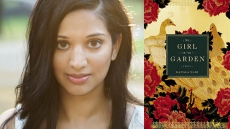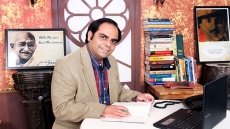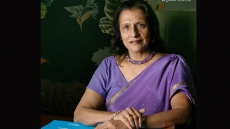“Singing and writing had a healing effect on me and I became quite obsessed,” she states and describes how one day she declared to her parents that she wants to be a pop star and they replied back saying, “you’re going to the Gurdwara and [will] learn kirtan.”
Amrit Kaur Lohia credits the multicultural vibe of North London for initiating her exposure to the various shades of music. “Singing and writing had a healing effect on me and I became quite obsessed,” she states and describes how one day she declared to her parents that she wants to be a pop star and they replied back saying, “you’re going to the Gurdwara and [will] learn Kirtan.” Today, this sarangi player and vocalist in Punjabi folk, jazz and soul has fertilized a distinct voice for herself in the industry. “I fell into gurmat sangeet kirtan when I was 13 and by 14, I was touring internationally. I never really stopped. As I evolved, the music and my purpose also evolved.”
Her social enterprise, Humanised, founded in 2015 is probably a product of the purpose she talks about. “It is an educational production company producing workshops and plays that aim to diversify cultural experiences through music, poetry, traditional theatre and history, from around the world,” she explains.
Lohia’s experiences working as a youth worker with children in foster care, youth offenders, and girls from vulnerable backgrounds propelled her to engage dialogue towards activism and empowerment using Humanised as a medium. “After graduating, instead of picking one path, I decided to continue doing everything I loved in the form of ‘Humanised.’ I was awarded a social enterprise grant and have had a great deal of support since then. I want to make the world’s cultures accessible through music and theatre – I feel empowered to empower!”
How does religion or spirituality influence your music?
Music first came into my life from a spiritual source. The Sikh scriptures are written to music and explore the significance of sound and instruments. For me, music has become a meditation in any form or context. I cannot separate the two.
What has been the most defining moment of your career so far?
Something that has definitely propelled my career as a musician is my original composition of Amrita Pritam’s famous poem “Ajj Akhaan Waris Shah Nu.” I originally composed it for a play on the Partition of India [in] 1947. Soon after, I was talking about it at TEDx events, singing it around the world, and [was also] approached by record labels. The composition encapsulates my passion for raw expression, history and women’s experiences. It does make people cry. And it definitely makes people think.
You are also trained as a theatre director. Tell us a bit about that.
I first went to see theatre when I was 16 – through a theatre scheme that allowed my friends and I to watch everything on the West End (London’s Broadway) for five quid! I was amazed at how theatre could physically immerse you in a different world. The live music made theatre even more accessible to me and I was proof that theatre is not just for the elite. At university, I merged my passion for history, music and theatre when
I directed the music for a play on the Partition of India 1947. The music moved audiences and engaged them with history in a way I had never anticipated. A year later, I got the opportunity to learn about directing at the Young Vic Theatre and since then I have worked with theatre makers and companies that are diversifying the industry and its audience. Theatre is a powerful tool – it can create a climate of sensitivity to allow you to empathise with people you may have no relation to. You can really transform communities by telling stories in this way.
How was your experience at the Jaipur Literature Festival (JLF) in 2016?
I performed my composition of Amrita Pritam’s poem at a SOAS (The School of Oriental and African Studies, University of London) event in 2015 not knowing that Namita Gokhale, the director of JLF, was in the audience. She came up to me and said “You are coming to India!” A year later, I was performing at the JLF in Jaipur, London and Boulder Colorado. The performance in India was daunting – there were thousands of people there and not to forget the world’s media. For many Indians it was extraordinary to see a girl from London playing a sarangi and passionate about Indian culture. Luckily, my performance got an overwhelmingly positive response and I was in all the national newspapers. For me that was significant – I got the approval of an Indian audience. It definitely gave me the confidence to keep going.
What can we expect from Amrit in the next few months?
I am writing new music and touring North America and Europe this year. I am also directing a play on the Chagos Islanders case and writing my first book! Based on true events, it tells the story of women’s experiences in Punjab during World War One. My ultimate goal is to continue these endeavours and for it all to remain a constant meditation. Easy, right?
Photo Credit: Doug Larson, Karaminder Ghuman






